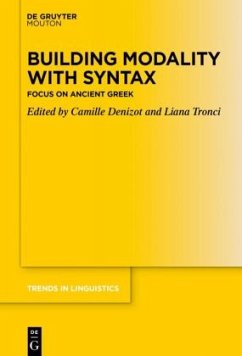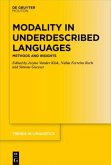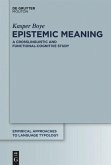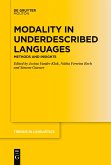Despite the intensive research carried out in recent years, modality remains an intriguing and challenging issue in linguistics. This book investigates modality from a syntactic viewpoint and with a bottom-up approach. A strong focus of the book is the interaction between the different linguistic tools that build modality (moods, modal verbs, modal adverbs, etc.), taking both the role of syntactic structure and the compositionality of modal meanings into account. The volume comprises corpus-based studies devoted to several syntactic aspects of modality in Ancient Greek, within different theoretical frameworks. The chapters shed new light on different modal categories (e.g. epistemicity, possibility, counterfactuality, evidentiality, subjectivity) and show how these modal meanings arise from the combination of different linguistic devices in specific syntactic contexts (e.g. combinations of modal elements, types of main and dependent clauses, types of illocutionary acts, etc.). By approaching modality from a different perspective and providing an up-to-date discussion of several aspects of modality, the book makes a significant contribution to current debates.
Hinweis: Dieser Artikel kann nur an eine deutsche Lieferadresse ausgeliefert werden.
Hinweis: Dieser Artikel kann nur an eine deutsche Lieferadresse ausgeliefert werden.








